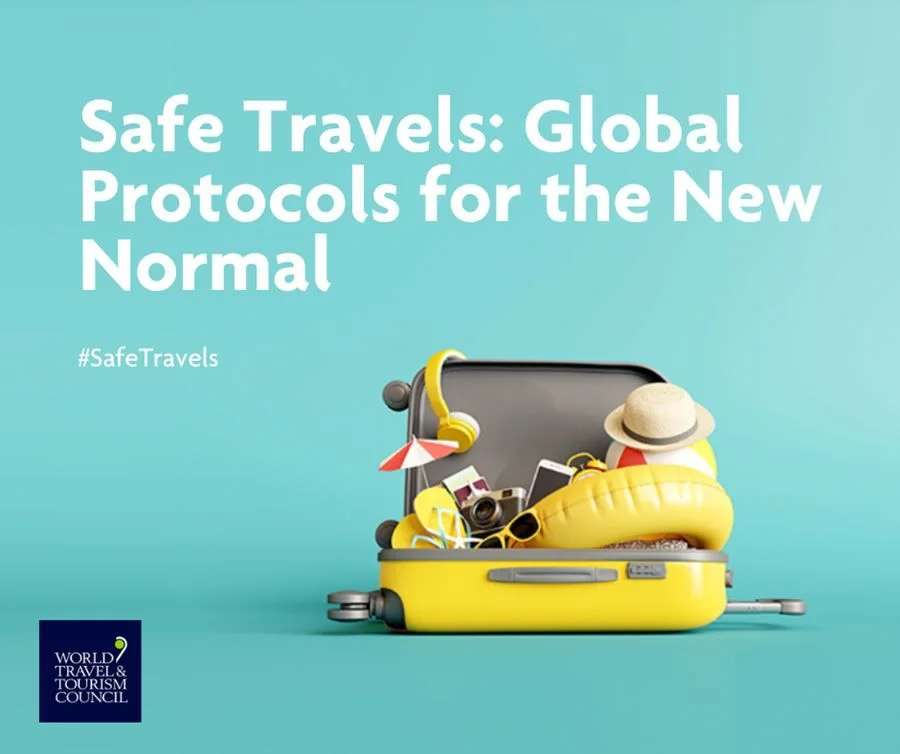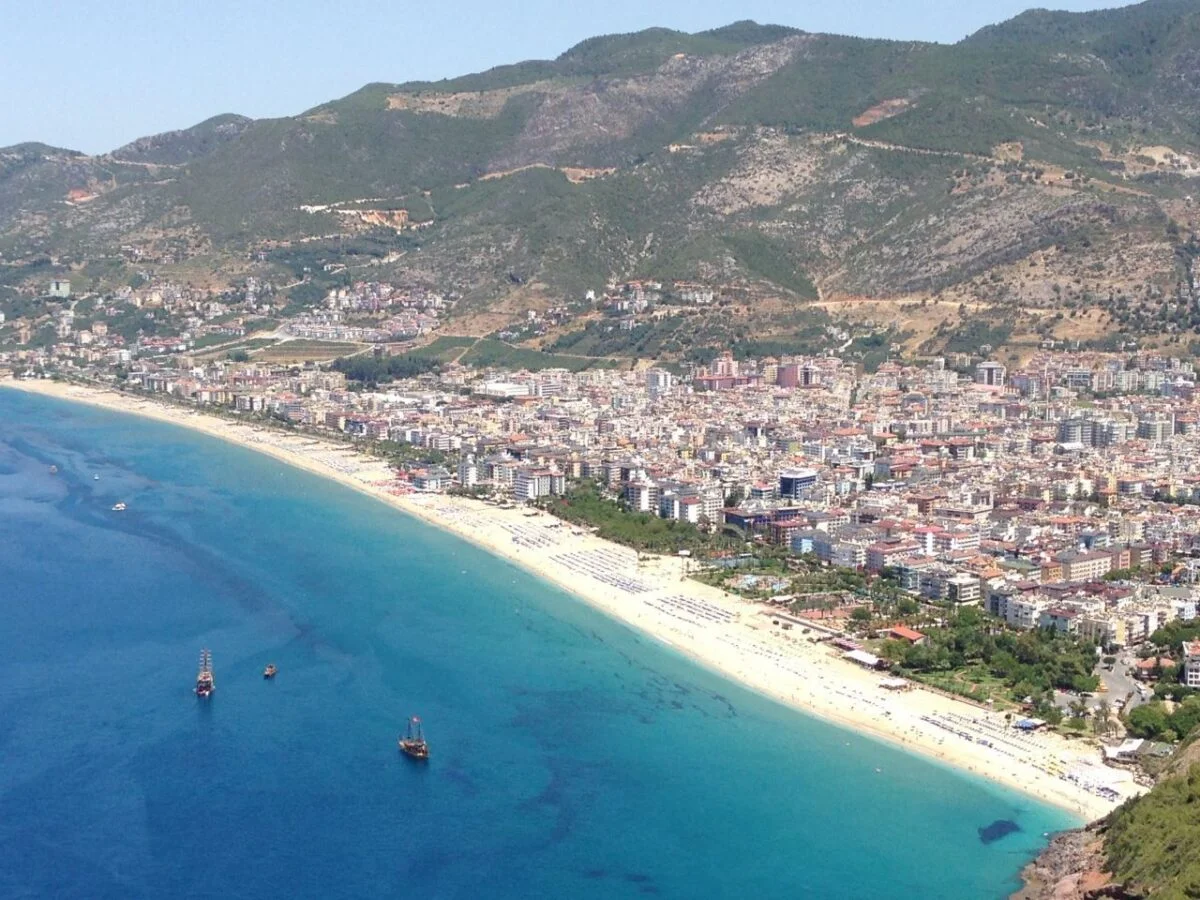The World Travel & Tourism Council (WTTC) has unveiled its third phase of measures designed to rebuild global consumer confidence, reduce risk and encourage the return of Safe Travels.
The latest protocols for the global Travel & Tourism sector focus on measures to ensure the reopening of global attractions, drive business to car hire companies, and enable short-term rentals to begin welcoming guests.
WTTC, which represents the global Travel & Tourism private sector, held detailed discussions with key stakeholders and organisations to ensure maximum buy-in, alignment and practical implementation.
The measures help to set clear expectations of what travellers can experience in the ‘new normal’ which offers safe environments as travel restrictions are eased.
Backed by the United Nations World Tourism Organization (UNWTO), the WTTC protocols also take into account guidelines from the World Health Organisation (WHO), and the WTTC Safe Travels stamp recognises those destinations, countries, businesses and governments worldwide which have adopted them.
The Safe Travel protocols also take into account guidelines from the World Health Organisation (WHO), and the WTTC Safe Travels stamp recognises those destinations, countries, businesses and governments worldwide which have adopted them.
Gloria Guevara, WTTC President & CEO, said: “Worldwide attractions, car hire and short-term rentals, are all represent key components of many family holidays, so it’s vital we establish measures which allow safe travels to take place for holidaymakers and travellers.
“Consumer confidence is crucial to create a climate in which Travel & Tourism can resume. We know travellers will want to explore and engage with the world around them once more and their return will also help power the world’s much-needed economic recovery.
“We would like to pay tribute to all those companies in the global private sector who have stepped forward and rallied around to support WTTC Safe Travels protocols. They create the consistency needed to allow a re-invigorated Travel & Tourism sector to re-open for business.
“The expertise from businesses large and small has contributed to define the new experience for travellers and these robust global measures have been embraced around the world.”
Brian Chesky, Airbnb co-founder and CEO said, “The desire to travel is deeply rooted in humanity. The industry will rebound and is critical to supporting the social and economic recovery of communities. Airbnb welcomes the WTTC’s work to create health and safety protocols that protect communities and support governmental efforts to reopen economies.”
The welfare of travellers and the millions of people employed throughout the Travel & Tourism sector at the heart of WTTC’s comprehensive package of Safe Travels protocols.
They avoid the emergence of multiple standards, which would only confuse the consumer and delay the sector’s recovery.
They also provide consistency to destinations and countries as well as guidance to travel providers, airlines, airports, operators, and travellers, about the new approach to health and hygiene in the post COVID-19 world.
Protocols for the attractions industry were compiled on the basis of insights and frameworks developed by the Global Association for the Attractions Industry (IAAPA) to support the safe, healthy and responsible restart of attractions around the world.
The measures increase the focus on health, safety and physical distancing standards for venues such as amusement parks, aquariums, family entertainment centres, museums, science centres, theme parks, water parks, zoos and other entertainment and cultural attractions.
Car hire has become an essential provider of transport and mobility during normal times for anyone who needs to travel, and in the post COVID-19 world could be vital for those who providing critical services, including healthcare professionals, emergency services and utilities.
The proposed Short-Term Rental protocols were designed for owners and operators.
Leading companies and associations in the Short-Term Rental industry were consulted closely by WTTC. Many partnered with trusted experts in public health and governments to support the safe, healthy, and responsible reopening of this type of accommodation to travellers.
WTTC divided the new guidance into four pillars including operational and staff preparedness; delivering a safe experience; rebuilding trust and confidence; and implementing enabling policies.
Measures announced today include:
Attractions
- Encourage guests to buy advanced tickets online if possible, and considered timed entries and smaller groups
- Identify realistic capacities for attractions based on queue length, waiting areas, pre-shows and vehicle capacity and adjust accordingly to allow for physical distancing
- Use of virtual queue systems, contactless touchpoints and payment where possible
- Personal protection equipment (PPE) available for all customer-facing staff
- Enhanced cleaning at high-frequency touch points, such as handrails, common areas and lifts.
- Sanitize strollers, electric buggies and wheelchairs between every use if applicable
- Make available hand sanitisers in high-traffic areas such as entry, key walkways, food and beverage locations, merchandise shops and exits
- Consider increasing the number of performances and an end-of-show announcement to encourage guests to take their time exiting
- For water parks, evaluate closing or removing hands-on interactive features within play structures if they aren’t covered in treated pool water
- Encourage guests to reduce the number of personal items they bring into the venue
Car Rental
- Pre-arrival health declaration via email, if required and in accordance with GDPR
- Enhance cleaning to all offices, including check-in, counters, desktops, washrooms and any high-frequency touch points
- Encourage use of curb side pick-up and drop off. Consider moving to a fully digital process including payments and limit physical interaction with staff
- Health/temperature checks, if recommended by legislation, and sanitation stations for customers through hand sanitisers in high-traffic areas
- Limit the number of people allowed per vehicle collection, as well as decreasing the number of people allowed in the car rental establishment at any one time
- All cars to be cleaned with a focus on high-frequency touch points such as keys, steering wheels, steering column, gear stick, seats, seat pockets, seat belts, door handles, gearboxes, gloveboxes, vents, key fobs, door interiors, areas between seats, dashboards, radio controls, centre consoles, rear view and side mirrors, cup holders and other surfaces.
Short-Term Rentals
- Use of contactless technology to enable automation at check-in and payment where possible
- Minimise physical interaction when providing guests with keys, ideally in a contactless manner by offering self- check-in and check-out, where possible
- Enhance sanitation, disinfection and deep cleaning practices as well as increasing their cleaning/disinfection frequency with a focus on high-frequency touch points, including bedrooms, common areas, washrooms and kitchens, including cutlery and utensil sanitisation
- Provide guests with physical distancing etiquette, including in elevators if relevant, through signage
- Make available hand sanitizer to guests at entrance of short-term rental
WTTC has previously issued details safe travel protocols for aviation, airlines, MICE, tour operators, hospitality and outdoor retail, which were widely endorsed and supported by top CEOs and business leaders globally.
It has also unveiled its landmark new global safety stamp to encourage Safe Travels and the reopening of the Travel & Tourism sector.
Major tourist destinations such as Turkey, Egypt, Portugal, and Jamaica, among many others, have led the way to sign up to the world’s first ever global safety and hygiene stamp.
Evidence from WTTC’s Crisis Readiness report, which looked at 90 different types of crises, highlights the importance of public-private cooperation to ensure that smart policies and effective communities are in place to enable a more resilient Travel & Tourism sector.
According to WTTC’s 2020 Economic Impact Report, during 2019, Travel & Tourism was responsible for one in 10 jobs (330 million total), making a 10.3% contribution to global GDP and generating one in four of all new jobs.











